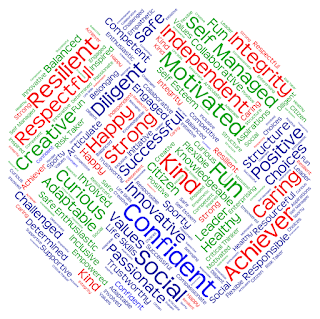Exciting times for Year 9 Science
Further from a previous post detailing a new framework for our Year 9 programme, a colleague and I have started mapping out how a new, more futures focused, Year 9 Science programme might look. We are trying to find a balance between background disciplinary knowledge and allowing for the development student's capacity to create new knowledge and investigate the world's wicked problems and possible solutions.
Key Competencies for the Future (Hipkins, Bolstad, Boyd and McDowell; NZCER 2014) has been an immense help for me as I work my way through the tension that exists between traditional science education which focuses on the acquisition of knowledge and future-oriented science learning, where we should use the Nature of Science learning outcomes to develop science thinking and literacy in an effort to have informed citizens. A part of the book that has resonated with me the most in this aspect is Chapter 3 p45-46 which describes assumptions about the mind, knowledge and learning that underpin the current education system (hopefully not for much longer). This is an articulated description of the fixed vs growth mindsets in education programmes.
So, the programme, based on school-wide themes:
Term One - Globalisation
Key Competencies for the Future (Hipkins, Bolstad, Boyd and McDowell; NZCER 2014) has been an immense help for me as I work my way through the tension that exists between traditional science education which focuses on the acquisition of knowledge and future-oriented science learning, where we should use the Nature of Science learning outcomes to develop science thinking and literacy in an effort to have informed citizens. A part of the book that has resonated with me the most in this aspect is Chapter 3 p45-46 which describes assumptions about the mind, knowledge and learning that underpin the current education system (hopefully not for much longer). This is an articulated description of the fixed vs growth mindsets in education programmes.
So, the programme, based on school-wide themes:
Term One - Globalisation
- Astronomy - Earth as a globe or planet, day, month, year, seasons, the ethics of space travel and colonisation of Mars as solution to the overpopulation of Earth.
- Hydrology - Water and water cycle. Water rich/poor countries - will water become the next currency? States of matter - how and where water exists, can it be moved around the globe + how.
- Diversity of Matter - elements, mixtures, separating mixtures - salt to fresh water (link to water issue in Term 1)
- Diversity of Life - ecosystems, food webs, biodiversity - NZ's unique biodiversity and the need to protect it. Introduced pests and controversial pest controls e.g. biological control agents vs 1080
- Diversity of Energy - what is energy, waves - light vs sound (A work in progress. Still need some big picture thinking ideas in here - help anyone?)
- Human digestive system/nutrition, inquiry into food security - what innovations exist or are being developed to address food security - link to digestive system - what is quality/nutritious food? Finding lots of inspiration in Chapter 4 of Key Competencies for the Future
- Thermodynamics (context of cooking food + why we cook food link to digestive system)
- Sustainability - this will be the cross-curricular unit we have done for the last 5 years. It is an independent inquiry unit titled "What can you do?" Students choose a sustainability issue and complete an inquiry with a bias towards action, and evaluate the consequences of that action. In science we support their exploration of the scientific aspects of their issues. Very Nature of Science focused.
Our next step was to start designing SOLO taxonomy rubrics of learning outcomes. In an ideal world, these would be co-constructed with students, but not all of our junior Science teachers are this far on board yet.
Here is the first section of Term 1
The beauty of this rubric is that reluctant teachers can work from unistructural up to extended abstract in a traditional teaching model, however it gives the rest of us the freedom to work from the top down, encouraging creative and innovative thinking in context - and students can access a guide to what foundational knowledge they might need. A non-threatening framework for those who feel challenged by the moves in education, but enabling for those of us that are ready to fly.
My hope is that in time, with support and seeing it in action, they will join us.
Credit to Mr Angus Jones for the co-development of this Science programme
Credit to Mr Angus Jones for the co-development of this Science programme


Comments
Post a Comment